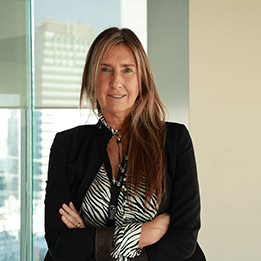

Lead counsel, LATAM and general counsel, Chile | EY



Tatiana Munro Cabezas
Lead counsel, LATAM and general counsel, Chile | EY
Team Size: Five
What are the most important cases or transactions your legal team has been involved in recently?
It is a public fact that during the last year, EY was evaluating a major transaction that would have resulted in the separation of the audit and consulting businesses, but which was ultimately decided against, notwithstanding the conclusion of the transaction. The team was involved in conducting legal analysis and in constant coordination with both regional and global legal professionals throughout the process.
Additionally, as of 1 July 2023, EY is operating as a single integrated firm in Latin America, known as OneLatam, which represents a huge challenge for our local and regional legal teams. It will require significant coordination to identify and align criteria in various matters, incorporate new technology in certain standardisable processes and share best practices across jurisdictions, but at the same time, always keeping an eye on our own country and making sure we act in accordance with local legal regulation.
From a business perspective, especially given the advancement of disruptive technologies such as Artificial Intelligence (AI) that we are experiencing, and the realities of our post-pandemic world, the challenges for in-house legal teams are tremendous, but simultaneously, these challenges are incredible learning opportunities, especially in a professional services firm like EY, at the forefront of adopting these technologies for the provision of consulting and assurance services, while also providing its audit services in an increasingly regulated market.
Looking ahead, what technological advances do you think will most affect the role of in-house legal teams in the future? Which one have you found most helpful in your legal team?
In my opinion, technology should be at the service of the legal profession, and we should not be afraid of it. On the contrary, we should be able to embrace it and implement it in such a way that our lawyers have access to the best information available, in order to be able to give timely and quality advice. Having a good repository and document management system, contracts, are key tools for an in-house legal team to know the macro KPIs, prevent, identify and manage certain key risks and provide a more agile and better service to the business lines.
Why are in-house lawyers well positioned to drive change in their organisations?
In-house lawyers need to know the business, its risks, and complexities in order to be able to provide good legal advice. It is not enough to know the applicable law, and not infrequently the recommendations of an external lawyer must be reconciled, interpreted, or adapted by in-house legal management to the realities of the company.
How do you suggest in-house counsel build strong relationships with business partners?
I believe it is not very different to how personal relationships are built, with transparency, trust, values, and leadership. You must understand the variables that mobilise business partners and from there empathise, build bridges, and gain their trust. It is important that they see you as an ally and not as an obstacle, someone who can support them but also as someone who can take charge on certain decisions and risks, understanding that sometimes you have to say no. When your partner asks for your opinion before doing business, it means that you are well on your way to becoming a trusted advisor.
General counsel, Chile and lead counsel for Latin America | EY
Corporate legal manager | Empresa Nacional del Petróleo
Corporate legal manager | Empresa Nacional del Petróleo (ENAP)
Nominated by peers for consistently ‘delivering a high level of legal advice with a strategic vision’, Tatiana Munro Cabezas is corporate legal manager at ENAP. Given ENAP’s status as the...